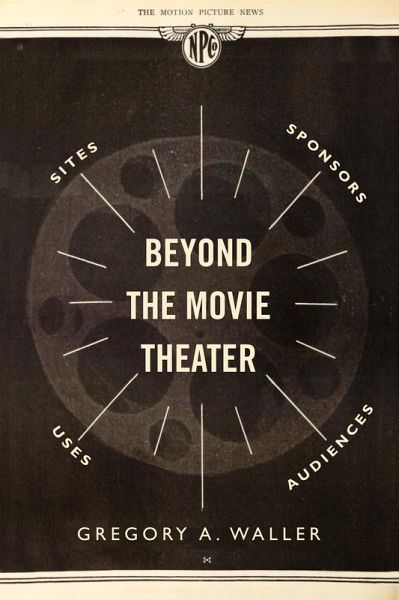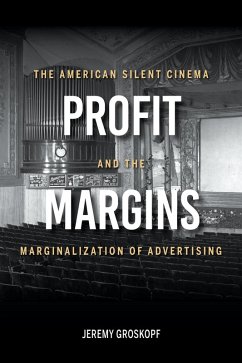
Beyond the Movie Theater (eBook, ePUB)
Sites, Sponsors, Uses, Audiences

PAYBACK Punkte
5 °P sammeln!
A free ebook version of this title is available through Luminos, University of California Press's Open Access publishing program. Visit www.luminosoa.org to learn more.Beyond the Movie Theater excavates the history of non-theatrical cinema before 1920, exploring where and how moving pictures of the 1910s were used in ways distinct from and often alternative to typical theatrical cinema. Unlike commercial cinema, non-theatrical cinema was multi-purpose in its uses and multi-sited in where it could be shown, targeted at particular audiences and, in some manner, sponsored. Relying on contemporary...
A free ebook version of this title is available through Luminos, University of California Press's Open Access publishing program. Visit www.luminosoa.org to learn more.
Beyond the Movie Theater excavates the history of non-theatrical cinema before 1920, exploring where and how moving pictures of the 1910s were used in ways distinct from and often alternative to typical theatrical cinema. Unlike commercial cinema, non-theatrical cinema was multi-purpose in its uses and multi-sited in where it could be shown, targeted at particular audiences and, in some manner, sponsored. Relying on contemporary print sources and ephemera of the era to articulate how non-theatrical cinema was practiced and understood in the US during the 1910s, historian Gregory A. Waller charts a heterogeneous, fragmentary, and rich field that cannot be explained in terms of a master narrative concerning origin or institutionalization, progress or decline. Uncovering how and where films were put to use beyond the movie theater, this book complicates and expands our understanding of the history of American cinema, underscoring the myriad roles and everyday presence of moving pictures during the early twentieth century.
Beyond the Movie Theater excavates the history of non-theatrical cinema before 1920, exploring where and how moving pictures of the 1910s were used in ways distinct from and often alternative to typical theatrical cinema. Unlike commercial cinema, non-theatrical cinema was multi-purpose in its uses and multi-sited in where it could be shown, targeted at particular audiences and, in some manner, sponsored. Relying on contemporary print sources and ephemera of the era to articulate how non-theatrical cinema was practiced and understood in the US during the 1910s, historian Gregory A. Waller charts a heterogeneous, fragmentary, and rich field that cannot be explained in terms of a master narrative concerning origin or institutionalization, progress or decline. Uncovering how and where films were put to use beyond the movie theater, this book complicates and expands our understanding of the history of American cinema, underscoring the myriad roles and everyday presence of moving pictures during the early twentieth century.
Dieser Download kann aus rechtlichen Gründen nur mit Rechnungsadresse in A, D ausgeliefert werden.













